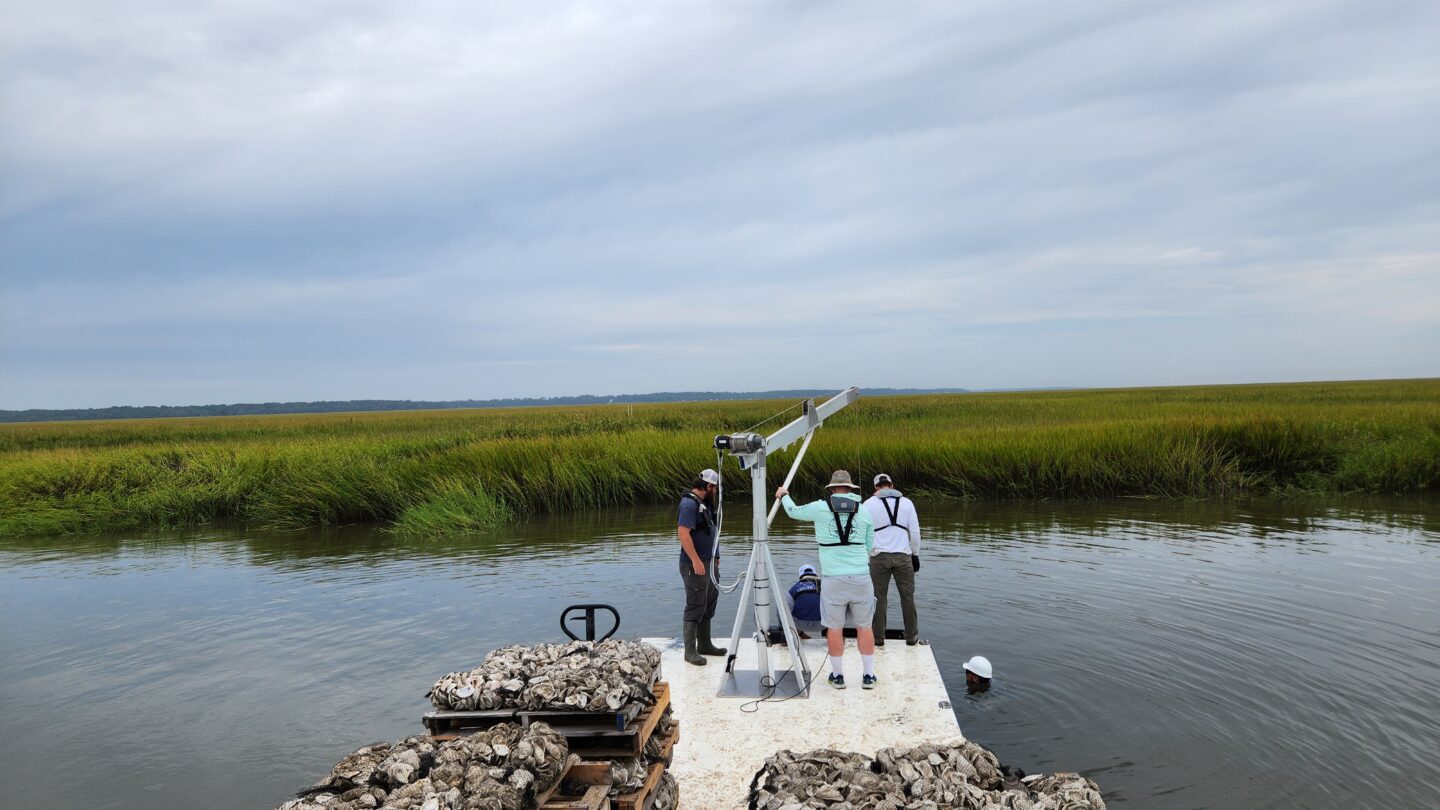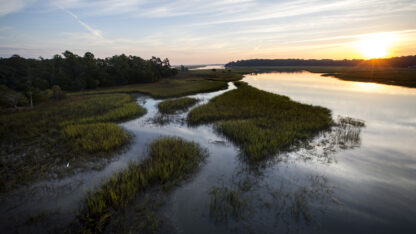Georgia lawmakers weigh controversial change to marsh ownership law

This coverage is made possible through a partnership with WABE and Grist, a nonprofit, independent media organization dedicated to telling stories of climate solutions and a just future.
Georgia lawmakers are considering a bill that would make it easier for coastal landowners to claim ownership of parts of the state’s salt marsh. The sponsors say it would promote conservation, but advocates are skeptical.
Georgia’s vast acres of salt marsh are by default state property unless a landowner has a clear title dating all the way back to a land grant from the English crown or the state of Georgia just after Independence. That’s more than 200 years of history, and it can be pretty difficult and time-consuming to prove a clear chain of private marsh ownership through all that time.
So state representative Jesse Petrea, a Republican from Savannah, and his cosponsors hope to streamline the process for people who want to claim a piece of marsh, as long as they conserve it.
“It’s locked tight for conservation purposes,” Petrea said in a hearing earlier this month. “There’s wisdom in doing that.”
Under the bill, HB 370, the state would have 180 days to respond to a claim of marsh ownership. After that, ownership would default to the petitioner.
But critics say it can take a lot longer than that to sort through two centuries of often-handwritten documents — so the state would risk giving away its own property.
“The bill no longer requires individuals to go through that very rigorous process of proving an unbroken chain of title,” said April Lipscomb of the Southern Environmental Law Center.
She said the kind of property giveaway that could result violates the state constitution.
The bill’s sponsors say it would incentivize the conservation of an important coastal resource. And both sides agree the marsh is essential to protect, because it’s a vital part of the coastal ecosystem and a buffer against rising sea levels.
“Georgia coast is one of the jewels in the crown of the state,” said Republican Rep. Matt Reeves of Duluth, who’s supporting the bill. “We are blessed to have several counties, to have 100 miles of coastland.”
But opponents of the bill say there’s no need to incentivize conservation when the marsh is already protected under state law. Attorney Kevin Lang said what the bill really does is enable owners to sell mitigation credits — so that developers can destroy marsh elsewhere.
“If you could monetize already-protected coastal salt marsh, that would seem like you’re almost creating money out of, something out of, thin air,” Lang said.
Critics like Lang said a time limit for marsh title claims might make sense. But they worry the current proposal leaves too much room for error, and could even result in a net loss of marshes.








